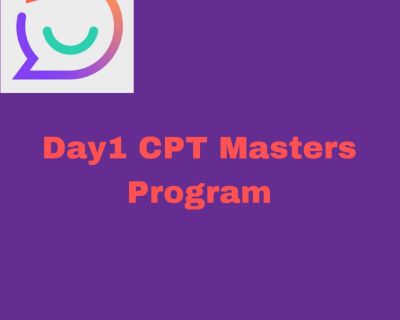Introduction
The IELTS Speaking Test is one of the four sections, and an integral part of the International English Language Testing System (IELTS) exam, which assesses your English language proficiency for studies and work purposes abroad.
In this comprehensive guide made for 2023, we will explore various strategies, tips, and resources to help you achieve the best possible score on this test.
Our aim is to provide you with in-depth information to help you prepare effectively for the IELTS Speaking Test and move on to success.
1. Understanding the IELTS Speaking Test
a. Brief Overview of the IELTS Speaking Test: format and scoring details
The IELTS Speaking Test is divided into three parts and lasts for a total of 11-14 minutes.
- Part 1 consists of general questions about familiar topics, such as your hobbies, hometown, or daily routines.
- In Part 2, you are given a cue card with a specific topic as a prompt, and you are expected to speak about it for 1-2 minutes.
- Part 3 involves a more in-depth discussion of the topic from Part 2, focusing on more abstract ideas and concepts.
Your performance is assessed based on four criteria: fluency and coherence, lexical resource, grammatical range and accuracy, and pronunciation. To gain a better understanding of the test structure and scoring system, read our blog post on the overview, format, and scoring details of the IELTS Speaking Test.
b. Importance of proper pronunciation, intonation, and pace
Pronunciation, intonation, and pace play crucial roles in the IELTS Speaking Test, as they contribute to the overall clarity and effectiveness of your speech. Proper pronunciation ensures that your words are easily understood, while appropriate intonation helps convey your intended meaning and emotions. Speaking at the right pace allows you to communicate your ideas effectively without appearing rushed or hesitant.
To learn more about how to bring improvements in your pronunciation, check out our article : how to improve your pronunciation for the IELTS Speaking Test. For guidance on using the right intonation, refer to our blog post on understanding and using the right intonation in the IELTS Speaking Test.
Lastly, discover strategies for speaking at the right pace by following our guide on tips for speaking at the right pace in the IELTS Speaking Test.
2. Preparing for the IELTS Speaking Test
a. Building a study plan
Creating a personalized study plan is essential for effective IELTS Speaking Test preparation. A well-designed plan helps you set realistic goals, allocate your time efficiently, and track your progress.
Your study plan should include dedicated time for practicing speaking, reviewing grammar and vocabulary, and taking mock tests.
To learn more about crafting the perfect study plan, read our article on the importance of building a study plan for IELTS Speaking Test preparation.
b. Utilizing resources
A wide variety of resources is available to aid in your IELTS Speaking Test preparation. These resources include textbooks, online courses, mobile apps, and YouTube channels. Each resource offers unique benefits, and using a combination of them can help you cover all aspects of the test.
To find the most suitable resources for your needs, check out our blog post on how to make the most of online resources for IELTS Speaking Test practice.
c. Taking mock tests
Practicing with mock tests is crucial for familiarizing yourself with the IELTS Speaking Test format and assessing your strengths and weaknesses. Regularly taking mock tests can help you identify areas that need improvement, monitor your progress, and build your confidence.
Learn more about the benefits of mock tests and how to incorporate them into your study plan by reading our blog post on the benefits of taking mock IELTS Speaking Tests.
d. Practicing on your own
Self-study and independent practice are key components of IELTS Speaking Test preparation. You can practice by recording yourself speaking, joining online discussion forums, or even talking to yourself in English. Consistent practice helps you develop fluency, expand your vocabulary, and refine your grammar.
Discover effective strategies for practicing on your own by reading our article on tips for practicing IELTS Speaking on your own.
e. Preparing with a tutor
Working with an experienced IELTS tutor can provide personalized guidance, feedback, and support throughout your preparation. Tutors can help you identify your weaknesses, offer tailored advice, and provide structured practice sessions.
To make the most of your tutoring experience and maximize its benefits, read our blog post on tips for preparing for the IELTS Speaking Test with a tutor.
f. Short-term preparation strategies
If you have limited time to prepare for the IELTS Speaking Test, it’s crucial to prioritize your efforts and focus on the most critical aspects of the test. You can do this by identifying your weaknesses, concentrating on high-impact strategies, and setting realistic goals for improvement.
For more tips on how to effectively prepare for the test in a short period, check out our blog post on strategies for preparing for the IELTS Speaking Test in a short amount of time.
3. Improving Your Speaking Skills
a. Enhancing fluency
Fluency is an essential aspect of the IELTS Speaking Test. Improving your fluency involves practicing speaking English regularly, focusing on coherence, and eliminating unnecessary pauses or hesitations.
Incorporate daily speaking practice into your routine, such as engaging in conversations with native speakers or participating in online discussion forums. Focus on organizing your thoughts and expressing them coherently.
To improve your fluency in English, check out our blog post on tips for improving your fluency in English for the IELTS Speaking Test, which provides a comprehensive guide to overcoming common fluency obstacles and enhancing your speaking skills.
b. Boosting pronunciation
Your pronunciation plays a significant role in your overall IELTS Speaking score. To refine your pronunciation, pay attention to individual sounds, word stress, and intonation.
Record yourself speaking and seek feedback from native speakers or language tutors. Use online resources such as pronunciation guides and videos to practice and perfect your pronunciation skills.
Read our guide on how to improve your accent for the IELTS Speaking Test for tips on refining your pronunciation, including exercises and techniques to improve specific aspects of your speech.
c. Developing grammar
Grammar is another critical aspect of your speaking skills. To enhance your grammatical accuracy, review essential grammar rules, practice forming complex sentences, and analyze your recorded speech for errors.
Consider using grammar workbooks and online resources to reinforce your understanding of grammatical structures. Engage in writing exercises to practice creating grammatically accurate sentences, and then incorporate these structures into your spoken English.
Our article on tips for improving your grammar for the IELTS Speaking Test provides valuable advice on how to enhance your grammar skills, including resources and strategies to help you overcome common grammatical challenges.
d. Expanding vocabulary
A rich and diverse vocabulary is vital for effective communication. To build your vocabulary, read widely, take note of new words, and practice using them in context.
Create flashcards or use vocabulary-building apps to learn new words, and challenge yourself to use them in conversations or written exercises. Explore different topics and fields of interest to expose yourself to a wide range of vocabulary.
Learn about understanding and using the right vocabulary in the IELTS Speaking Test to help you express your ideas clearly and accurately, and to discover strategies for acquiring and retaining new vocabulary effectively.
e. Improving listening skills
Good listening skills are crucial for understanding questions and responding appropriately during the IELTS Speaking Test. Enhance your listening abilities by watching English-language videos, listening to podcasts, and engaging in conversations with native speakers.
Focus on different accents and speaking styles to develop your ability to understand a variety of English speakers. Practice active listening by taking notes or summarizing what you hear, and challenge yourself with more complex listening materials as your skills improve.
Check out our blog post on tips for improving your listening skills to help with the IELTS Speaking Test for more guidance, including a range of resources and exercises to help you develop your listening skills.
f. Using idiomatic expressions
Idiomatic expressions can enrich your spoken English and help you sound more natural. To effectively incorporate idioms into your speech, familiarize yourself with common expressions, understand their meanings, and practice using them in context.
Use resources such as idiom dictionaries or websites to discover new expressions and their meanings. Make a list of idioms that you find particularly interesting or useful, and practice incorporating them into your spoken English during conversations or speaking exercises. Be mindful of using idioms appropriately, as they can sometimes be confusing or inappropriate if used incorrectly. Seek feedback from native speakers or language tutors to ensure you’re using idioms effectively.
Our article on how to use idiomatic expressions in the IELTS Speaking Test provides helpful tips on mastering the use of idioms, including strategies for learning, understanding, and incorporating idiomatic expressions into your speech in a natural and accurate way.
4. Strategies for Success in the IELTS Speaking Test
a. Avoiding common mistakes
Being aware of common mistakes made by candidates in the IELTS Speaking Test can help you prevent making the same errors. Common mistakes include using overly complex vocabulary without understanding its meaning, excessive use of fillers, and inadequate preparation for the test.
Focus on improving your language skills and familiarize yourself with the test format to reduce the likelihood of making these errors.
To learn more about these pitfalls and how to avoid them, read our blog post on common mistakes to avoid in the IELTS Speaking Test, which provides a comprehensive analysis of common issues and offers practical solutions for overcoming them.
b. Building confidence
Confidence is key when it comes to performing well in the IELTS Speaking Test. To build your confidence, practice speaking English regularly, set realistic goals, and focus on your strengths.
Additionally, familiarize yourself with the test format and content to reduce anxiety and uncertainty. Engage in activities that boost your self-esteem, such as joining language clubs or participating in public speaking events.
Check out our article on how to build your confidence for the IELTS Speaking Test for more strategies and guidance on developing self-assurance in your speaking abilities and maintaining a positive mindset during the test.
c. Mastering time management
Effective time management is essential for success in the IELTS Speaking Test. Practice pacing yourself during speaking exercises, allocate sufficient time to each part of the test, and avoid lengthy pauses or hesitations.
Develop strategies for organizing your thoughts quickly and efficiently, such as outlining your ideas in your mind before speaking.
Read our blog post on the importance of time management in the IELTS Speaking Test to discover valuable tips and strategies for managing your time effectively during the test and ensuring that you provide well-rounded answers within the allotted time.
d. Using linking words and phrases
Linking words and phrases, such as “however,” “in addition,” and “on the other hand,” help you connect your ideas and improve the coherence of your speech. Familiarize yourself with various linking words and practice using them appropriately in your spoken English.
Experiment with different linking expressions to determine which ones work best for your speaking style and the specific ideas you wish to convey.
To learn more about how to use linking words and phrases effectively, read our guide on how to use linking words and phrases effectively in the IELTS Speaking Test, which provides a detailed explanation of various linking expressions and offers practical exercises for incorporating them into your speech.
e. Answering difficult questions
The IELTS Speaking Test may include challenging questions that require critical thinking and the ability to express complex ideas. To prepare for such questions, practice forming and expressing opinions on various topics, and develop strategies for addressing questions you find difficult.
Consider using the “PEEL” technique (Point, Evidence, Explain, Link) to structure your answers and ensure that you provide a clear and coherent response.
For more tips on handling challenging questions, read our blog post on strategies for answering difficult questions in the IELTS Speaking Test, which outlines a step-by-step approach to tackling complex questions and offers helpful suggestions for enhancing your critical thinking skills.
f. Preparing for test day
Proper preparation for the day of the IELTS Speaking Test can help you feel more confident and focused. Familiarize yourself with the test location, ensure you have all required documentation, and practice relaxation techniques to manage stress.
Get a good night’s sleep before the test and eat a nutritious meal to ensure that you have the energy and focus needed for optimal performance. Arrive at the test center early to allow yourself time to acclimate to the environment and reduce any last-minute stress.
For a comprehensive guide on what to expect on test day and how to prepare, read our article on tips for the day of the IELTS Speaking Test, which covers essential aspects of test day preparation, including mental and physical strategies for staying calm and composed during the test.
g. Utilizing body language
Appropriate body language can enhance your communication and create a positive impression on the examiner. Maintain eye contact, use natural gestures, and pay attention to your posture during the test. Avoid slouching, fidgeting, or engaging in other distracting behaviors, as these can detract from your overall performance.
Practice speaking in front of a mirror to become more aware of your body language and to identify any areas that need improvement.
To learn more about how to use body language effectively, read our blog post on understanding and using appropriate body language in the IELTS Speaking Test, which provides detailed information on various aspects of nonverbal communication and offers practical tips for improving your body language during the test. By mastering these strategies and incorporating them into your preparation, you’ll be well-equipped to excel in the IELTS Speaking Test and achieve your desired score.
5. Making the Most of Your IELTS Speaking Test Preparation
a. Taking a preparation course
An IELTS Speaking Test preparation course can provide you with invaluable guidance, resources, and support to help you excel in the test. These courses typically offer personalized feedback, structured lessons, and opportunities to practice speaking with fellow students or tutors.
To make the most of your preparation course, be an active participant in class, complete all assignments, and seek feedback on your progress.
For more information on how to maximize the benefits of a preparation course, read our article on strategies for making the most of the IELTS Speaking Test preparation course, which outlines key factors to consider when choosing a course and provides practical tips for optimizing your learning experience.
b. Working with a tutor
A private tutor can offer personalized guidance and tailored lessons to help you improve your speaking skills and address any weaknesses. To make the most of your time with a tutor, set clear goals, be open to feedback, and consistently practice the skills and strategies you learn during your sessions.
Additionally, you can ask your tutor to focus on specific areas of concern or to provide targeted feedback on your speaking performance.
Read our blog post on tips for preparing for the IELTS Speaking Test with a tutor to learn more about how to effectively work with a tutor and maximize the benefits of one-on-one instruction.
c. Using online resources
There is a wealth of online resources available to help you prepare for the IELTS Speaking Test. These resources include video lessons, practice tests, vocabulary lists, and tips from experienced test-takers. To make the most of these resources, create a study schedule that includes regular practice, review, and assessment of your progress.
Be selective in the resources you use, focusing on those that are reputable and relevant to your needs.
For guidance on how to effectively use online resources in your preparation, check out our article on how to make the most of online resources for IELTS Speaking Test practice, which offers strategies for identifying high-quality resources and incorporating them into your study routine.
d. Practicing on your own
Independent practice is crucial for improving your speaking skills and building confidence. Set aside time each day to practice speaking aloud, record yourself, and analyze your performance.
You can also practice by engaging in conversations with native speakers, participating in online forums, or using language exchange apps.
For more tips on effective self-study, read our blog post on tips for practicing IELTS Speaking on your own, which provides a range of strategies and resources for enhancing your speaking skills through independent practice.
e. Taking mock tests
Mock IELTS Speaking Tests are an excellent way to gauge your progress and identify areas that need improvement. By simulating the test experience, you can become more comfortable with the format, time constraints, and question types you’ll encounter on test day.
Use feedback from mock tests to refine your strategies and address any weaknesses in your speaking performance.
Our article on the benefits of taking mock IELTS Speaking Tests provides insights into the advantages of mock testing and offers tips on how to effectively incorporate them into your study routine.
f. Creating a study plan
A well-structured study plan can help you stay organized and focused during your IELTS Speaking Test preparation. Begin by setting clear goals, identifying your strengths and weaknesses, and allocating time for each aspect of the test.
Include a mix of self-study, practice with a tutor or language partner, and use of online resources to ensure a well-rounded approach to your preparation. Regularly assess your progress and adjust your plan as needed to ensure that you stay on track and continue to improve.
For guidance on developing an effective study plan, read our blog post on the importance of building a study plan for IELTS Speaking Test preparation, which outlines key components of a successful plan and provides tips for creating a personalized study schedule that works for you.
g. Improving your listening skills
Developing strong listening skills is crucial for success in the IELTS Speaking Test, as it enables you to better understand the examiner’s questions and respond appropriately.
To improve your listening skills, engage in regular listening practice, such as listening to podcasts, watching videos, or attending language meetups. Additionally, work on identifying accents, understanding different speaking speeds, and comprehending various vocabulary levels.
Check out our article on tips for improving your listening skills to help with the IELTS Speaking Test for more strategies and resources for enhancing your listening abilities and how they can contribute to your speaking performance.
h. Focusing on intonation
Intonation refers to the rise and fall of your voice when speaking, and it can greatly impact the clarity and effectiveness of your communication. To improve your intonation, listen to native speakers and pay attention to their speech patterns.
Practice mimicking their intonation, focusing on stress, rhythm, and pitch. Recording yourself and analyzing your speech can also help you identify areas for improvement.
To learn more about intonation and how to use it effectively, read our blog post on understanding and using the right intonation in the IELTS Speaking Test, which provides an in-depth look at the role of intonation in spoken communication and offers practical exercises for improving your intonation skills.
i. Using idiomatic expressions
Idiomatic expressions, such as phrasal verbs, idioms, and colloquialisms, can help you sound more natural and fluent in English. However, it’s important to use them correctly and in the appropriate context.
Familiarize yourself with common idiomatic expressions and practice using them in your spoken English. Be mindful of the context and appropriateness of each expression, ensuring that it enhances your communication rather than confusing your listener.
For more guidance on using idiomatic expressions effectively, read our article on how to use idiomatic expressions in the IELTS Speaking Test, which offers a comprehensive list of expressions to learn and tips for incorporating them into your speech in a natural and effective way.
By incorporating these strategies and resources into your IELTS Speaking Test preparation, you will be better equipped to achieve your desired score and demonstrate your English language proficiency.
Remember to stay focused, practice regularly, and seek support from tutors, peers, and online resources to maximize your potential for success in the test.
Conclusion
Mastering the IELTS Speaking Test requires a combination of understanding the test format, effective preparation, and continuous improvement of your speaking skills.
By following the strategies, tips, and resources provided in this comprehensive guide, you will be well-equipped to face the IELTS Speaking Test with confidence and achieve your desired score. Remember to review the linked articles for in-depth information and guidance, and keep practicing to hone your English-speaking abilities.
Good luck!

















